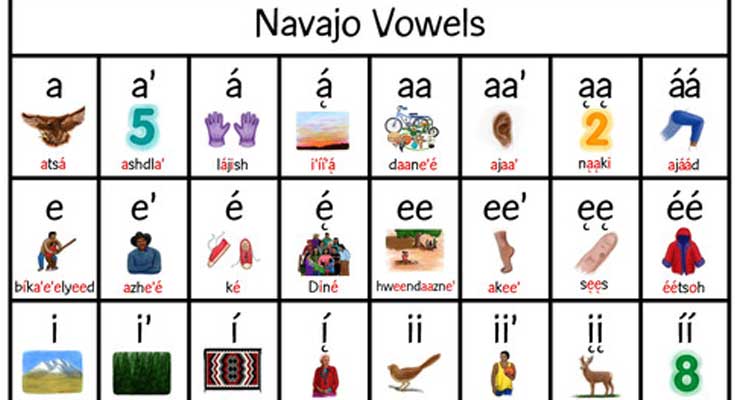
Argument is that unwritten Navajo language leaves them at disadvantage in mail-only ballot system
Thanks to Election Law Blog for the link:
SAN JUAN, UTAH – The Lawyers’ Committee for Civil Rights Under Law (Lawyers’ Committee), DLA Piper, LLP, the American Civil Liberties Union (ACLU) and the American Civil Liberties Union of Utah (ACLU of Utah) announce the filing of a new lawsuit against San Juan County, Utah on behalf of the Navajo Nation Human Rights Commission, and seven members of the Navajo Nation. The lawsuit challenges the County’s decision to switch to a mail-only voting system that adversely impacts Navajo voters, and the County’s decision to designate the only site for in-person voting at a location far away from the majority of the Navajo voters.
The lawsuit, Navajo Nation Human Rights Commission v. San Juan County et al., was filed in the United States District Court for the District of Utah and alleges that San Juan County violates provisions of the Voting Rights Act of 1965 and the Fourteenth Amendment to the United States Constitution.
The case arises from the County’s decision in 2014 to close all polling places and switch to a mail-only voting system. The County is covered by Section 203 of the Voting Rights Act and is required to provide all voting materials – including voting instructions and ballots – in both English and Navajo. However, because Navajo is an unwritten language, the County’s mail-only ballot system conflicts with their Section 203 obligations.
The postal system in rural parts of San Juan County, where many Navajo voters reside, is unreliable and not accessible, making it difficult for many Navajo voters to receive and return their ballots on time under a mail-only electoral system. Although the County is approximately half white and half Navajo, the only way a voter can vote in-person under the current voting scheme is to travel to the County Clerk’s office in the county seat of Monticello, which is 84 percent white.
Because Navajo residents tend to live farther from the county seat than white residents, Navajo voters do not have the same voting opportunities as other residents: Navajo residents must travel, on average, more than twice as long as white residents in order to reach Monticello to vote in-person. The trip for a Navajo voter takes, on average, over two hours round trip, while the trip for a white voter takes, on average, under an hour. For residents living in the areas in the southwest of the County that are majority Navajo, the round trip to Monticello to vote in-person is even longer and may take between nine and ten hours.
“For Native American voters, the protections long provided by the Voting Rights Act have proven vital,” said Kristen Clarke, president and executive director of the Lawyers’ Committee for Civil Rights Under Law. “History makes clear that certain voting changes that benefit the majority, may disadvantage and impair the rights of a few. Our case seeks to protect the rights of those Navajo voters who seek meaningful access to the ballot box and the right to participate in our democracy.”
“The County’s switch to a mail-only voting system disproportionately impacts Navajo voters who live further from the County seat and do not speak English,” said Ezra D. Rosenberg, co-director of the Voting Rights Project of the Lawyers’ Committee. “The Voting Rights Act, which is meant to ensure that obstacles are not placed in the way of racial, ethnic, and language minorities from participating in the political process, prohibits that.”
Laughlin McDonald, an attorney with the Voting Rights Project of the American Civil Liberties Union, said “there has been such a history of discrimination against American Indians in voting, and unfortunately the mail-in system of voting adopted by San Juan County perpetuates that history.”
“Equal access to vote is fundamental to the American way of life,” said Ray Williams, a partner at DLA Piper LLP. “By moving to a mail only process, members of the Navajo Nation are being denied equal access to vote. That is not fundamental to the American way of life and therefore must be addressed.”
“Utah can’t properly honor the democratic process if the voices of Navajo voters are excluded from that process,” said Leah Farrell, ACLU of Utah staff attorney. “We must make every effort, through the voting process and through all governmental outreach, to hear the voices of all the people who live in Utah; mail-only voting threatens to exclude valuable and valued communities within our state.”
“It is very unfortunate that we have to go through another round of lawsuits to protect Navajo people’s voting rights in San Juan County,” said Leonard Gorman, executive director for the Navajo Nation Human Rights Commission. “My office repeatedly requested that San Juan County rescind mail-in ballot elections in the near future. I have been met with silence, other than the mail-in ballot will not be lifted for now. Many of my Navajo relatives cannot read, speak and/or write in the English language. For this reason, San Juan County is supposed to provide language assistance to Navajo voters that are non-English readers at the polling places. With the all mail-in ballot elections, my grandmothers and grandfathers are especially left to cast ballots they cannot read, if they receive a ballot in the mail.”
Leave a Reply